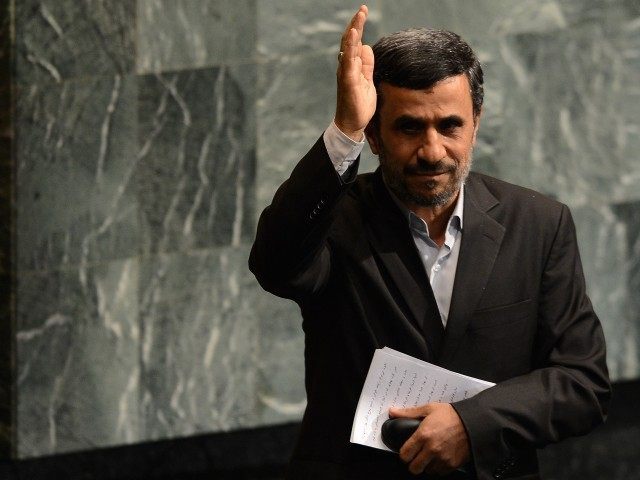New details of the history of the Iran deal talks that the Obama administration eagerly sought talks with the Iranian regime, granting it the “right” to enrich uranium at the outset.
Furthermore, the American approach to Iran began under the administration of Holocaust-denying, election-stealing Mahmoud Ahmadinejad, rather than his “reformist” successor, Hassan Rouhani. And rather than Iran coming to the table as a result of sanctions and pressure, the Obama administration essentially surrendered the West’s key demand in order to start the talks.
These details are emerging from interviews of Iranian officials in the Farsi media, translated by the Middle East Media Research Institute (MEMRI). And they are damning.
For example, Hossein Sheikh Al-Islam, an adviser to the speaker of the Iranian parliament (Majlis), says that Secretary of State John Kerry was already mediating with the Iranian regime when he was still just a U.S. Senator, and that he wrote a letter, submitted via Oman, recognizing Iran’s “right” to enrich uranium–which has few purposes other than to build nuclear weapons.
The negotiations took place long before Rouhani was elected president, after a contrived candidate selection process designed to produce him as the winner, offering a more palatable face to the West.
Obama actually approached Iran while Ahmadinejad was still president, and after he had led a bloody crackdown in the streets to suppress protests against the stolen election of 2009 (to which Obama’s reaction was tepid, belated, and ineffectual). He had no compunction about legitimizing Iran’s nuclear ambitions when the regime was at its very worst.
Another interview, with Ali Akbar Salehi–Iran’s vice president, and Ahmadinejad’s foreign minister–reveals that the selection of Secretary of Energy Ernest Moniz as a member of the American negotiating team was done at the insistence of the Iranians, since Salehi had known Moniz at MIT.
Salehi also says that Rouhani was surprised by the extent of the talks when he took office in 2013, and that Obama had sought talks even after he began his re-election campaign–knowing that he might be binding his successor to a policy most Americans would reject.
Though anything the Iranian regime says in the media must be taken with a grain of salt, the evidence points to a determined effort by the Obama administration to establish Iran as a nuclear power, not as a response to Iranian reforms but as a fervent desire of the White House itself. The fact that Iran was threatening its neighbors, denying the Holocaust, and repressing its own citizens meant nothing.
The secret talks, which cast Obama’s “tough diplomacy” as a kind of willing surrender, have been kept hidden until now from Congress and the media.

COMMENTS
Please let us know if you're having issues with commenting.